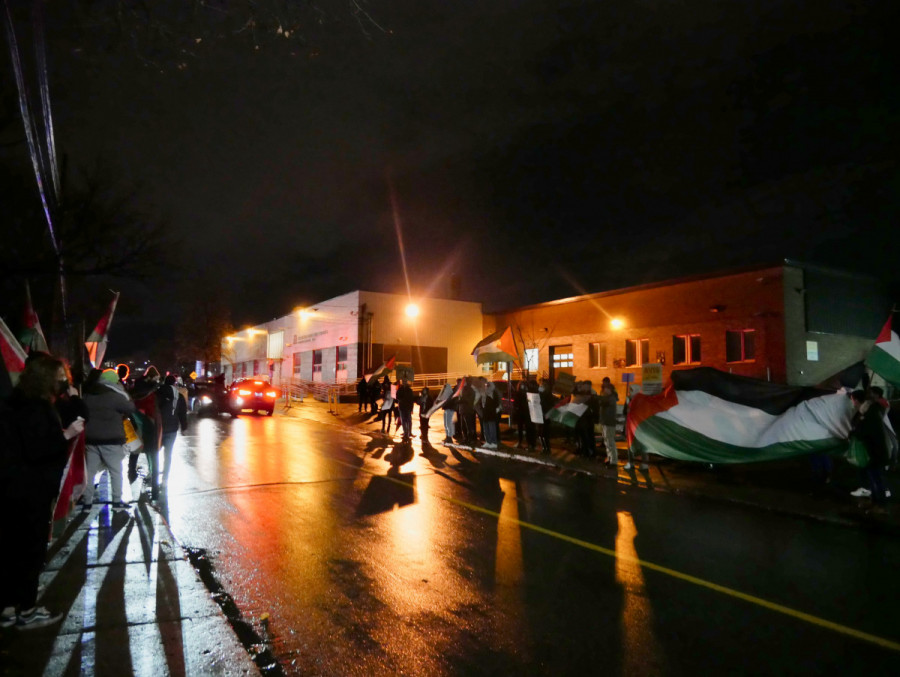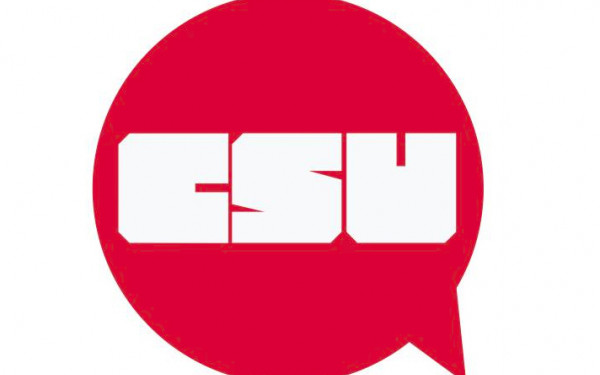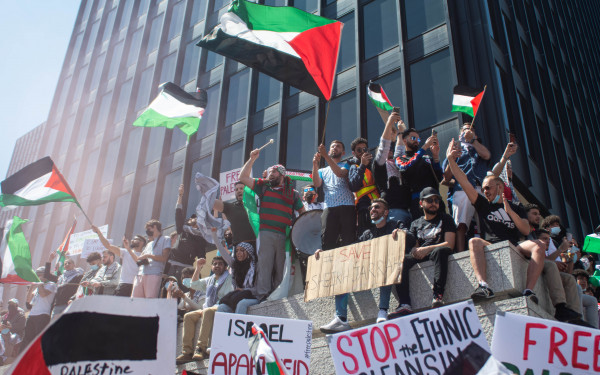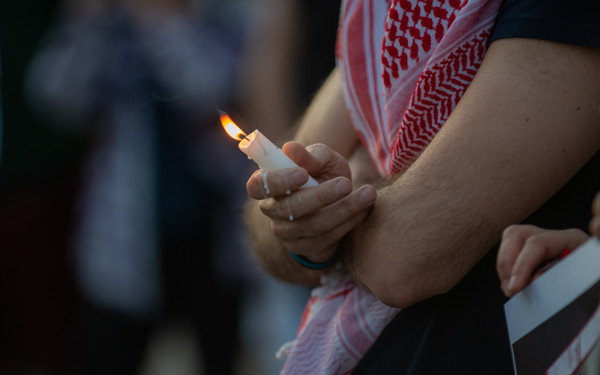Protestors disrupt Stephen Harper-led pro-Israel talks
Activists call for boycotts, divestment, and sanctions in response to Israeli human rights violations
Several dozen protestors at the Jardin Royalmount disrupted the “fireside chat” led by Stephen Harper and organized by B’nai Brith Canada and NGO Monitor on Nov. 18.
Guests handed their cars off to valets and filtered into the venue hosted by said Zionist organizations who are dedicated to fighting anti-semitism in Canada and investigating pro-Palestinian NGOs. Protestors rallied by Canada Sanctions Israel, gathered in front of the gates wearing keffiyehs and brandishing Palestinian flags.
They hoped their chants would help bring awareness to the Palestinian struggle and those responsible for it. Protestors denounced Israeli encroachment on Palestinian land, but zoned in on the politicians and companies that enable it.
“We’re trying to call out the hypocrisy of the people attending, who are paying an attendance fee which is going to fund genocide in Israel,” said Youssef, a protestor who opted to use a pseudonym. According to him, each seat at the dinner cost $1250.
While most attendees kept to the warmth of the venue, many also emerged to take pictures and mock those outside. Soon, police arrived and corralled protestors away from the entrance, helping guests enter the Jardin unimpeded.
Although protestors stayed outside for several hours, the talk inside occurred without further disruption.
These kinds of events are nothing new for Harper, who famously spoke at the Knesset, Israel's parliament, in 2014.
Presently, the ex-prime minister serves as a partner and advisory committee president for Awz, an Israeli security-tech firm. When, in 2014, he announced his intentions to visit the country, he also referred to Israel as “a light of freedom and democracy in what is otherwise a region of darkness.”
As Harper settled into office in 2006, he demonstrated a positive stance on Israel. Even then, Israel's military record was already the cause of much controversy. This was the same year that Israel Defense Forces airstrikes tore through Lebanon in operations against Hezbollah, killing droves more civilians than enemy combatants.
Harper's stance did not waver. In 2014, when Gazan civilians bore the brunt of Israel’s military forays against Hamas, Harper claimed that this was because the group had been using them as human shields. The claim’s authenticity is controversial, but—if true—would also not constitute an excuse for war crimes, according to Amnesty International and Human Rights Watch.
“Every military action Israel has ever taken has been to protect itself. Israel is not an aggressor state; it’s a defensive state,” said Harper in a video for PragerU. “With all the brutal and violent regimes, not only in the Middle East, but around the world, how is one to explain singling out Israel for condemnation? Sadly, only one explanation fits: anti-Semitism,” he continued.
“Our parents and grandparents certainly faced anti-semitism. But when people say that criticizing Israel is anti-semitic, we’re not only insulting that memory, but also endangering Jews because we lose sight of real anti-semitism.” — Kevin
In response to Harper’s stance, Kevin, a Jewish protestor, felt insulted. “Our parents and grandparents certainly faced anti-semitism. But when people say that criticizing Israel is anti-semitic, we’re not only insulting that memory, but also endangering Jews because we lose sight of real anti-semitism,” he said, adding that, “[the conflation of anti-semitism and anti-Zionism] is a technique to attack Palestinians and undermine their solidarity.”
Protestors were also quick to denounce Prime-Minister Justin Trudeau's hypocrisy in regards to the situation. Last May, he stated that he is "deeply concerned about the resettlement and eviction of Palestinians." However, Trudeau has continued to renew strong diplomatic ties with Israel, as well as selling 57$ million worth of arms to the country since 2015.
“Most people don’t know their government is complicit in genocide,” said Youssef.
He stressed that because the problem is ongoing, action against Israel should be continuous.
Boycott, Divestment, and Sanctions is a direct descendant of the Anti-Apartheid Movement, which succedded in placing economic sanctions against, as well as removing South Africa from the Commonwealth. “We want to end apartheid. What happened in South Africa is what we want to happen to free Palestine,” said Kamel Alagha, from CSI.
Although most Israeli exports to Canada are not consumer goods, he urged Canadians to be more mindful of where their groceries come from.
“People have been displaced for [oligarchs] to profit thousands of miles away. We boycott everything that’s built illegally on our land.” — Mahmoud Khalil
In 2020, Canadians consumed around $30 million worth of Israeli fruits and nuts, most of which was citrus. Youssef stated that many multinationals have benefited from Israel's invasion of the West Bank, and that the boycott should extend to them as well. Such companies include McDonalds, Puma, and Teva, one of the world’s largest drug manufacturers.
“On stolen land, on internationally recognized illegal settlements, you cannot have products that are also easily bought in Canada. These help settlers go into Palestinian lands and start selling there,” said Mahmoud Khalil, from Canada Sanctions Israel. “People have been displaced for [oligarchs] to profit thousands of miles away. We boycott everything that’s built illegally on our land.”
“You don’t have to physically fight,” Alagha continued. “Raising your voices will put pressure on those people to use their power for something other than genocide or displacing people.”
As the protest neared its third hour, one man exchanged his keffiyeh for a hat and mittens. "We'll stay here as long as we need to," he stated.





_600_375_90_s_c1.jpg)

